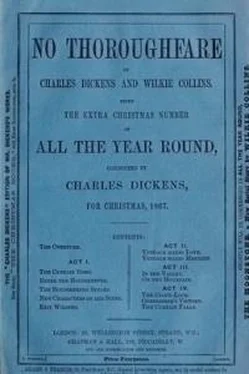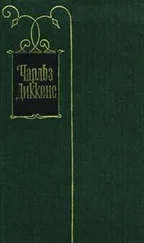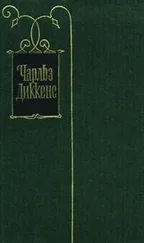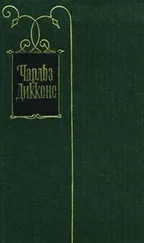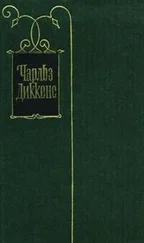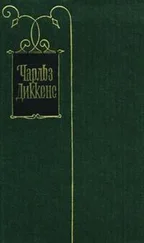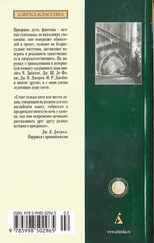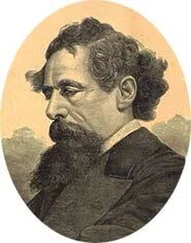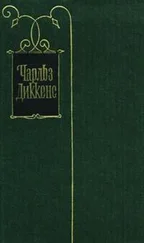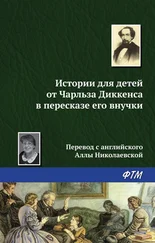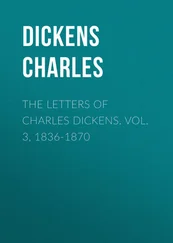Чарльз Диккенс - No Thoroughfare
Здесь есть возможность читать онлайн «Чарльз Диккенс - No Thoroughfare» весь текст электронной книги совершенно бесплатно (целиком полную версию без сокращений). В некоторых случаях можно слушать аудио, скачать через торрент в формате fb2 и присутствует краткое содержание. Год выпуска: 2014, Издательство: epubBooks Classics, Жанр: Классическая проза, на английском языке. Описание произведения, (предисловие) а так же отзывы посетителей доступны на портале библиотеки ЛибКат.
- Название:No Thoroughfare
- Автор:
- Издательство:epubBooks Classics
- Жанр:
- Год:2014
- ISBN:нет данных
- Рейтинг книги:5 / 5. Голосов: 1
-
Избранное:Добавить в избранное
- Отзывы:
-
Ваша оценка:
- 100
- 1
- 2
- 3
- 4
- 5
No Thoroughfare: краткое содержание, описание и аннотация
Предлагаем к чтению аннотацию, описание, краткое содержание или предисловие (зависит от того, что написал сам автор книги «No Thoroughfare»). Если вы не нашли необходимую информацию о книге — напишите в комментариях, мы постараемся отыскать её.
No Thoroughfare — читать онлайн бесплатно полную книгу (весь текст) целиком
Ниже представлен текст книги, разбитый по страницам. Система сохранения места последней прочитанной страницы, позволяет с удобством читать онлайн бесплатно книгу «No Thoroughfare», без необходимости каждый раз заново искать на чём Вы остановились. Поставьте закладку, и сможете в любой момент перейти на страницу, на которой закончили чтение.
Интервал:
Закладка:
Turning from his interest in the past to his interest in the future, Vendale still found himself confronting a doubtful prospect. Months on months had passed since his first visit to Soho Square—and through all that time, the one language in which he had told Marguerite that he loved her was the language of the eyes, assisted, at convenient opportunities, by the language of the hand.
What was the obstacle in his way? The one immovable obstacle which had been in his way from the first. No matter how fairly the opportunities looked, Vendale's efforts to speak with Marguerite alone ended invariably in one and the same result. Under the most accidental circumstances, in the most innocent manner possible, Obenreizer was always in the way.
With the last days of the old year came an unexpected chance of spending an evening with Marguerite, which Vendale resolved should be a chance of speaking privately to her as well. A cordial note from Obenreizer invited him, on New Year's Day, to a little family dinner in Soho Square. "We shall be only four," the note said. "We shall be only two," Vendale determined, "before the evening is out!"
New Year's Day, among the English, is associated with the giving and receiving of dinners, and with nothing more. New Year's Day, among the foreigners, is the grand opportunity of the year for the giving and receiving of presents. It is occasionally possible to acclimatise a foreign custom. In this instance Vendale felt no hesitation about making the attempt. His one difficulty was to decide what his New Year's gift to Marguerite should be. The defensive pride of the peasant's daughter—morbidly sensitive to the inequality between her social position and his—would be secretly roused against him if he ventured on a rich offering. A gift, which a poor man's purse might purchase, was the one gift that could be trusted to find its way to her heart, for the giver's sake. Stoutly resisting temptation, in the form of diamonds and rubies, Vendale bought a brooch of the filagree–work of Genoa—the simplest and most unpretending ornament that he could find in the jeweller's shop.
He slipped his gift into Marguerite's hand as she held it out to welcome him on the day of the dinner.
"This is your first New Year's Day in England," he said. "Will you let me help to make it like a New Year's Day at home?"
She thanked him, a little constrainedly, as she looked at the jeweller's box, uncertain what it might contain. Opening the box, and discovering the studiously simple form under which Vendale's little keepsake offered itself to her, she penetrated his motive on the spot. Her face turned on him brightly, with a look which said, "I own you have pleased and flattered me." Never had she been so charming, in Vendale's eyes, as she was at that moment. Her winter dress—a petticoat of dark silk, with a bodice of black velvet rising to her neck, and enclosing it softly in a little circle of swansdown—heightened, by all the force of contrast, the dazzling fairness of her hair and her complexion. It was only when she turned aside from him to the glass, and, taking out the brooch that she wore, put his New Year's gift in its place, that Vendale's attention wandered far enough away from her to discover the presence of other persons in the room. He now became conscious that the hands of Obenreizer were affectionately in possession of his elbows. He now heard the voice of Obenreizer thanking him for his attention to Marguerite, with the faintest possible ring of mockery in its tone. ("Such a simple present, dear sir! and showing such nice tact!") He now discovered, for the first time, that there was one other guest, and but one, besides himself, whom Obenreizer presented as a compatriot and friend. The friend's face was mouldy, and the friend's figure was fat. His age was suggestive of the autumnal period of human life. In the course of the evening he developed two extraordinary capacities. One was a capacity for silence; the other was a capacity for emptying bottles.
Madame Dor was not in the room. Neither was there any visible place reserved for her when they sat down to table. Obenreizer explained that it was "the good Dor's simple habit to dine always in the middle of the day. She would make her excuses later in the evening." Vendale wondered whether the good Dor had, on this occasion, varied her domestic employment from cleaning Obenreizer's gloves to cooking Obenreizer's dinner. This at least was certain—the dishes served were, one and all, as achievements in cookery, high above the reach of the rude elementary art of England. The dinner was unobtrusively perfect. As for the wine, the eyes of the speechless friend rolled over it, as in solemn ecstasy. Sometimes he said "Good!" when a bottle came in full; and sometimes he said "Ah!" when a bottle went out empty—and there his contributions to the gaiety of the evening ended.
Silence is occasionally infectious. Oppressed by private anxieties of their own, Marguerite and Vendale appeared to feel the influence of the speechless friend. The whole responsibility of keeping the talk going rested on Obenreizer's shoulders, and manfully did Obenreizer sustain it. He opened his heart in the character of an enlightened foreigner, and sang the praises of England. When other topics ran dry, he returned to this inexhaustible source, and always set the stream running again as copiously as ever. Obenreizer would have given an arm, an eye, or a leg to have been born an Englishman. Out of England there was no such institution as a home, no such thing as a fireside, no such object as a beautiful woman. His dear Miss Marguerite would excuse him, if he accounted for her attractions on the theory that English blood must have mixed at some former time with their obscure and unknown ancestry. Survey this English nation, and behold a tall, clean, plump, and solid people! Look at their cities! What magnificence in their public buildings! What admirable order and propriety in their streets! Admire their laws, combining the eternal principle of justice with the other eternal principle of pounds, shillings, and pence; and applying the product to all civil injuries, from an injury to a man's honour, to an injury to a man's nose! You have ruined my daughter—pounds, shillings, and pence! You have knocked me down with a blow in my face—pounds, shillings, and pence! Where was the material prosperity of such a country as that to stop? Obenreizer, projecting himself into the future, failed to see the end of it. Obenreizer's enthusiasm entreated permission to exhale itself, English fashion, in a toast. Here is our modest little dinner over, here is our frugal dessert on the table, and here is the admirer of England conforming to national customs, and making a speech! A toast to your white cliffs of Albion, Mr. Vendale! to your national virtues, your charming climate, and your fascinating women! to your Hearths, to your Homes, to your Habeas Corpus, and to all your other institutions! In one word—to England! Heep–heep–heep! hooray!
Obenreizer's voice had barely chanted the last note of the English cheer, the speechless friend had barely drained the last drop out of his glass, when the festive proceedings were interrupted by a modest tap at the door. A woman–servant came in, and approached her master with a little note in her hand. Obenreizer opened the note with a frown; and, after reading it with an expression of genuine annoyance, passed it on to his compatriot and friend. Vendale's spirits rose as he watched these proceedings. Had he found an ally in the annoying little note? Was the long–looked–for chance actually coming at last?
"I am afraid there is no help for it?" said Obenreizer, addressing his fellow–countryman. "I am afraid we must go."
The speechless friend handed back the letter, shrugged his heavy shoulders, and poured himself out a last glass of wine. His fat fingers lingered fondly round the neck of the bottle. They pressed it with a little amatory squeeze at parting. His globular eyes looked dimly, as through an intervening haze, at Vendale and Marguerite. His heavy articulation laboured, and brought forth a whole sentence at a birth. "I think," he said, "I should have liked a little more wine." His breath failed him after that effort; he gasped, and walked to the door.
Читать дальшеИнтервал:
Закладка:
Похожие книги на «No Thoroughfare»
Представляем Вашему вниманию похожие книги на «No Thoroughfare» списком для выбора. Мы отобрали схожую по названию и смыслу литературу в надежде предоставить читателям больше вариантов отыскать новые, интересные, ещё непрочитанные произведения.
Обсуждение, отзывы о книге «No Thoroughfare» и просто собственные мнения читателей. Оставьте ваши комментарии, напишите, что Вы думаете о произведении, его смысле или главных героях. Укажите что конкретно понравилось, а что нет, и почему Вы так считаете.
